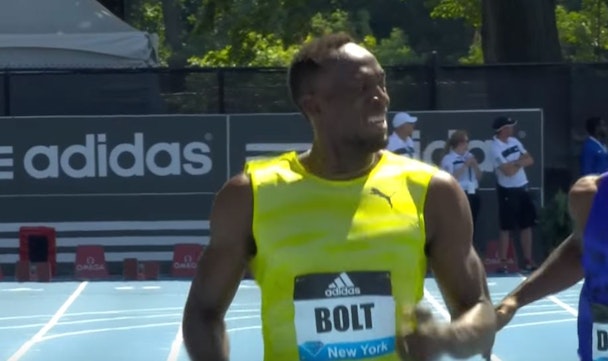Adidas' decision to terminate IAAF contract illustrates the evolution of sports marketing
Adidas’ decision to terminate its sponsorship deal with IAAF comes as no surprise given the revelations surrounding the doping scandal and while the decision was influenced by the morals of the situation, it has also been a pragmatic one which illustrates the evolution of sports marketing.

The German company’s 11 year supplier contract with the International Association of Athletics Federations (IAAF) was due to run until the end of 2019 however the claims of “state sponsored doping” led Adidas to walk away from the scandal ridden organisation.
It’s unlikely that this was a reluctant retreat however as the £23m ($33m) deal wasn’t building engagement in the same way that its football and running divisions have.
Pitch’s business development director, Paul McCormick, believes that Adidas’ decision to terminate its IAAF partnership can be traced back to the company’s change of strategy in 2015.
McCormick points to the two profit warnings and strong competitors emerging as the impetus for the company’s new five-year strategic plan, titled ‘Creating the New’. Underpinning the revised strategy was a ‘more by doing less’ approach.
“In the new strategic plan, football is the priority. If Adidas wants to lead in sport, winning in football is crucial," said McCormick.
He said that "the strategy is to win by exciting a younger audience by tapping into excitement around skills and a street football mentality.
McCormick maintains the approach to focus on millennials was also evident in its strategy for the "pivotal running market".
“In 2008, the Adidas IAAF partnership was signed. Fast forward eight years, and the running market is very different in 2016.
“Running is now more accessible to consumers, running apparel is a rapidly accelerating market and it’s about individual mentality as much as it is elite performance."
He concludes that “it’s clear from Adidas’ current strategy that the IAAF partnership didn’t align. In keeping with the company’s new ethos, if it’s not working, change it.”
The morals of the scandal have also been pivotal in the company’s decision to terminate the contract, although this has been widely questioned in the media in light of how Adidas responded to the corruption allegations at Fifa.
It’s worth noting the differences between the two however; the corruption at Fifa’s has been purely financial and has not called into question athlete performance, Adidas’ brand ambassadors like Lionel Messi remain unscathed consummate professionals.
With the IAAF on the other hand, the legitimacy of the sport itself has been tarnished and the possibility of some athletes’ medals being stripped calls into question the ethics of both the athletes and officials.
Steve Martin, chief executive of M&C Saatchi Sport & Entertainment, says that the brand’s choice to end the relationship was “a wise decision but it’s also been a balanced one, the morals of the scandal and the decision to strengthen the portfolio will have been split 50/50 when deciding to walk away".
He also believes that “the scale of track and field makes it a very difficult brand partnership to activate”.
“It’s a traditional model to have a sponsorship with the IAAF but questions will have been asked, they will have looked at whether they could activate brand engagement through the relationship and ultimately push sales.”
Athletics doesn’t offer Adidas the same kind of platform as its £750m Manchester United kit deal, consumers aren’t rushing out to buy footwear with running spikes and company’s shareholders will be looking for it to build on its success in the football and running market.
Martin highlights that track and field is not the best platform to market running. Running has become a mass community and Adidas aren’t going to sell running shoes off the back athletics.”
Adidas has shown that when the legitimacy of a sport is tarnished it is not afraid to walk away but it appears resolute in its focus on the football and running markets where engagement is far more achievable and prominent.
Its IAAF sponsorship may pale in comparison to its longstanding, and hugely profitable, relationship with Fifa but Adidas can reference its actions as an example of brands heralding a brave new world, one where they use their influence to push for a much needed ethical change.

